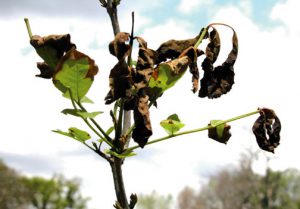
For the first time in several years we have seen freezing temperatures here in central Florida and will likely see more of them before spring gets here. The cold temperatures can burn back some of our favorite plants and yet help us by killing off bad bugs that are trying to overwinter in the garden.
We recommend covering plants with frost cloths or fabric that extends all the way to the ground, do not use plastic. Remove the covers during the day so the plant can continue its photosynthetic processes. If it is going to be windy as well as cold, you should weight the cloths down so they do not blow off. Tropical and subtropical plants such as hibiscus and pentas should be covered when temperatures drop below 32 degrees. Plants like citrus and cold-weather vegetable crops (broccoli and collards) can stand temperatures slightly lower without protection. But, if it is going to be a “hard freeze” (below 28 degrees for more than five hours), you should protect your citrus and veggies, too. The roots and lower portions of hibiscus, pentas and ginger will more than likely survive freezing temperatures, so pulling them up should not be necessary.
Any freeze damage should not be pruned back until you see new growth emerging later in the spring. If you prune the plants back now, it could stimulate new growth that may cause further damage by future cold snaps. If it is possible to postpone clipping the plant back, try to hold off until at least March. If new green leaves start to emerge be sure to cover them with frost cloth to prevent further damage.
For more information about cold protection on plants, visit http://edis.ifas.ufl.edu/mg025 or if you need help assessing your plants call the Marion County Master Gardeners at 671-8400.
 0
0
